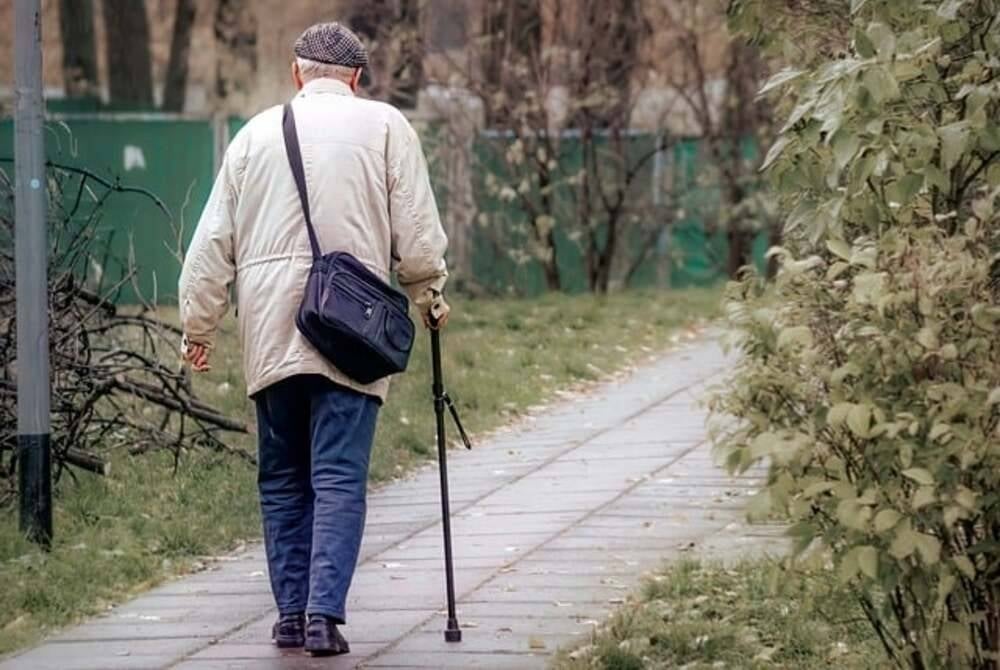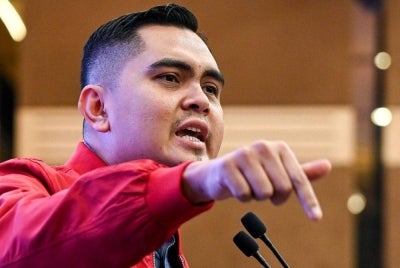Upholding elderly rights, dignity through Social Welfare Department’s intergeneration programme

KUALA LUMPUR - "Pohon bidara di tanah rata, Di atas guni buah kepayang, Marilah pelihara warga emas kita, Hidup harmoni warga penyayang”.
"Muara Langat nampak bebayang, Indah muara berlabuh bahtera, Warga emas diingat dan disayang, Hidup terpelihara negara sejahtera”.
(Let us protect our senior citizens and show them that we care. Our elderly are our treasured gems and should be remembered and appreciated. As Malaysians, we should be grateful to be able to live together in peace and harmony as a result of the sacrifices of our past leaders).
The pantun, extracted from the Malay Language textbook for Year Five highlights the importance of instilling love and care for the elderly. As in previous years, Malaysia marked the national-level Senior Citizens Day 2023 celebration in Ipoh, Perak on Oct 1.
This year’s theme ‘Hak Warga Emas: Merentas Generasi’ (Elderly Rights: Across Generations) was selected in recognition of the senior citizens’ invaluable role and contributions to society and the nation as well as to cultivate a caring society at all levels of the community.
Within the next seven years, Malaysia is expected to achieve the ageing nation status by 2030 when 15 per cent of its population will be above 60 years old.
According to the Population and Housing Census of Malaysia 2020, the nation’s population aged 60 and above increased eight per cent (two million) in 2010 to 10.4 per cent (3.4 million) in 2020.
Malaysia’s life expectancy at birth has increased to 75.6 years in 2020 from 63.6 years in 1970.
As such, proactive action is necessary to safeguard the welfare of the senior citizens.
According to Social Welfare Department (JKM) Deputy Director-General (Strategic) Rosmahwati Ishak, the principles of the National Policy for the Elderly (DWEN) which was approved on Jan 5, 2011 among others highlighted the need for intergenerational interactions to be strengthened with the objective of enhancing elder people’s participation from various age levels in the community.
She said JKM has drawn up several strategies among others to focus on the inclusive community, geared towards continuous growth in the socio-economic sector.
"JKM is focused on promoting ties as well as complementing efforts through activities or programmes to enhance good relations and unity among senior citizens from various generations.
"We also highlighted the importance of preserving heritage and mutual respect as well as building bridges together in activities or programmes for senior citizens,” she told Bernama in conjunction with Senior Citizens Day recently.
Describing this year’s celebration as in line with DWEN, which focuses on the government’s commitment towards creating self-reliant, dignified and respected senior citizens, Rosmahwati said this can be achieved by optimising their potential through active and healthy ageing, positive attitude and productivity as well as supporting efforts to improve quality of life and national development.
She said the theme also reflected Malaysia Madani’s concept, with ‘respect’ as one of the core values underlined - which is aimed at creating a society that is fair, just and equitable, dedicated and upholding high standards of ethics and integrity.
"This concept brings us all together and cuts across generations in upholding the rights and dignity of older people, whom we respect,” she added.
The Women, Family and Community Development Ministry (KPWKM) through JKM has embarked on various intergenerational initiatives since 2018.
Rosmahwati said based on JKM data, for the period 2018 to 2022, a total of 13,461 elders, youth and children were involved in intergenerational programmes.
"As of September 2023, eight programmes had been implemented which saw the participation of 2,738 people including elders, youth and children,” she said, adding that the intergenerational programmes were aimed at creating awareness among the younger generation on the needs of senior citizens by overcoming age stereotypes.
Intergenerational programmes among others can improve elderly wellbeing and self-esteem, reduce social isolation, foster active ageing as well as promote interaction between the young and senior citizens through knowledge-sharing.
Rosmahwati said intergenerational programmes were also undertaken in schools with additional studies related to the views of senior citizens and students.
"As youth, priority should be given to education as it holds great significance in their lives and in their future, while senior citizens, who are still healthy, experienced, knowledgeable and skilled should also be given the opportunity to positively contribute to society,” she said.
To ensure the safety of senior citizens who live alone, JKM has taken the initiative to encourage younger people or youth to become volunteers under the Home Help Services programme.
"The KBDR programme is a social support service by volunteers for senior citizens at home. This programme is also aimed at instilling the spirit of volunteerism in a more organised and effective manner for the community,” she explained.
Describing volunteers’ participation through the KBDR programme as helping to improve the community empowerment process for their development and wellbeing, Rosmahwati said it is in keeping with the government’s aspiration of bolstering the Community for Community (K4K) services to enhance social integration among the local community in a holistic manner.
"Volunteers’ participation is another commitment or responsibility of younger people toward elders despite not having any blood ties.
"Besides providing social support services for senior citizens, this programme also serves as a platform for volunteers to promote rehabilitation and integration of elderly care in the community,” she added.
Through the KBDR programme, she said it can directly reduce the number of senior citizens in welfare institutions managed by the government, private sector and non-governmental organisations (NGOs), hence supporting JKM’s Deinstitutionalisation (DI) programme.
Deinstitutionalisation is the gradual relocation of senior citizens at institutions and making elderly institutionalisation as the last choice.
As of Dec 31, 2022, Rosmahwati said a total of 2,225 volunteers nationwide have provided assistance through the KBDR services to 6,950 elders.
"Help services (based on needs) that can be extended by welfare volunteers include providing food and drinks, self-hygiene (bathing, nail cutting), hair combing, companionship, carrying out recreational activities and housekeeping or cleaning homes and the surrounding areas.
"Volunteers also wash, hang and fold clothes; providing physiotherapy services (those qualified), conducting practical training on healthcare techniques to caregivers as well as accompanying elders to hospitals or clinics for treatment and medication,” she said.
Women, Family and Community Development Ministry (KPWKM) Deputy Minister Aiman Athirah Sabu, in her speech at the national-level Senior Citizens Day 2023 celebration recently, said the ministry is targeting to create more senior citizens activity centres (PAWE) nationwide, depending on the elderly population in the particular area, in facing the challenges of an ageing nation by 2030.
At the same time, the ministry is currently expanding its strategic cooperation with government-linked companies (GLCs) to assist the government in providing services to the elderly, she added.
Aiman Athirah also said that the new direction for senior citizen services planned under the 12th Malaysia Plan such as the Senior Citizens Central Database and PAWE empowerment can have a significant impact on the wellbeing of the elderly in this country.
Commenting on the matter, Rosmahwati said the intergeneration programme undertaken by JKM will be further extended through PAWE as a platform.
"As an outreach programme, PAWE focuses on developing the senior citizens’ existing potential in terms of their capabilities especially those who are still healthy and energetic and who can still contribute their services and expertise to the local community,” she said, noting that it is a strategic collaboration between KPWKM and other government agencies as well as other NGOs to enable senior citizens to continue enjoying quality life in their golden years.
Rosmahwati also said that intergenerational relationships through PAWE are characterised by reciprocity, noting that while younger generations support older folks, the elders, who represented wisdom, earned through a life filled with experience, are assisting the young, which is a win-win situation.
"The PAWE programme should weigh in the interests of both parties, identify suitable activities for them, factor in the right location and time for implementation so that the activities can meet their needs and expertise, and which can generate positive impact,” she added.
To date, 161 PAWE centres are operational and active with 52,000 registered senior citizens. - BERNAMA
Download Sinar Daily application.Click Here!














